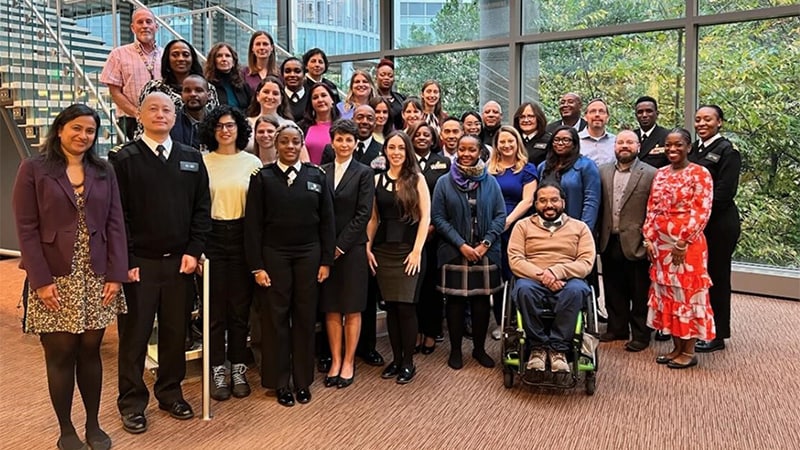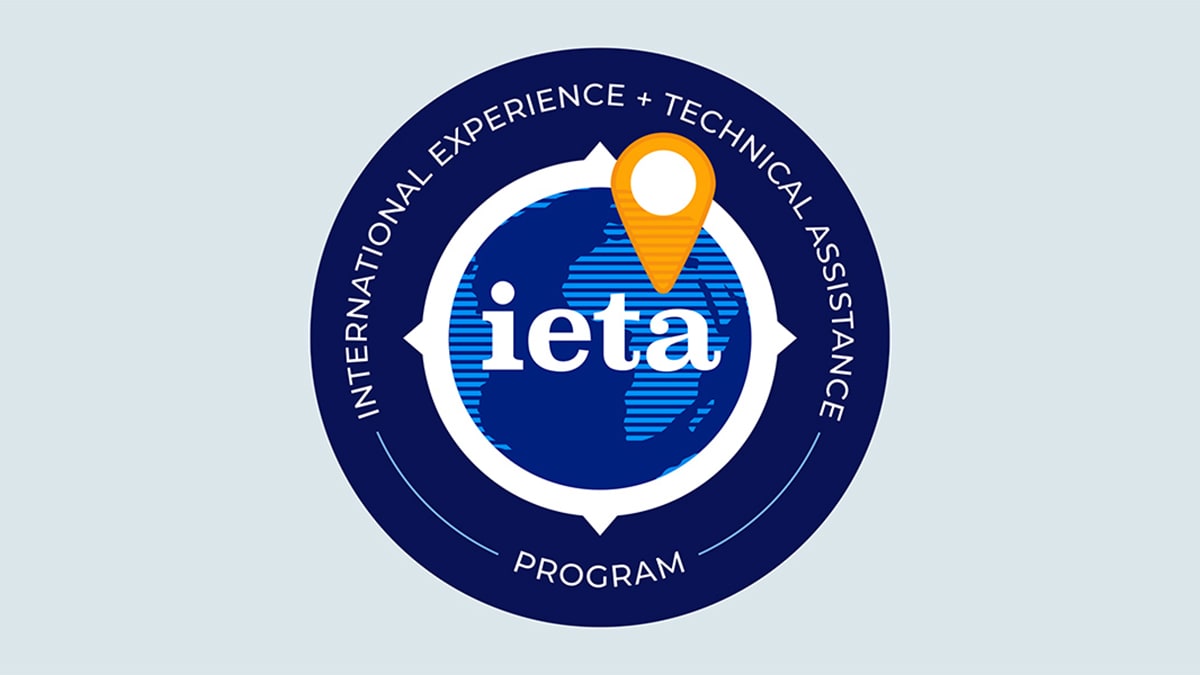What to know
- The current IETA cohort (2024-2025) remains on hold in 2025.
- Please continue to visit this webpage for updates on when the next application period may take place.

Competencies
IETA's "Best Fit" model uses core competencies to help potential candidates assess if IETA aligns with their public health career goals. It also assists in determining if they would thrive as a participant in the program.
Career goals
Be growth-minded and have global health career goals that include supporting HHS’s global mission. Candidates want to figure out if working internationally is right for them.
Cultural humility
Actively use cultural humility to build understanding of individual perspectives, experiences, and identities. They demonstrate the ability to live, work, and interact with people across a wide variety of cultural and social backgrounds.
Flexibility
Are open and flexible to different ways of seeing and doing. They are willing and able to adapt to change, particularly regarding how and when work gets done. They function well under uncertainty and frequently changing conditions.
Personal accountability
Take ownership of what happens as a result of their choices and actions. They pay close attention to the quality of their performance and address identified performance problems promptly.
Team player
Collaborate with others and care more about helping a team to succeed than individual success.
Technical expertise
Clearly articulate how they will contribute to HHS’s global mission.
Who can apply
Only HHS FTE employees and U.S. Public Health Service (USPHS) Commissioned Corps officers are eligible for the IETA program.
How to apply
Complete applications require the following two separate materials:
- Application with essay responses, applicant signature, and evaluation form with signatures from first and second-level supervisors. USPHS officers require the home agency liaison officer’s signature.
- Completed IETA resume template.
Once the application period closes, IETA program staff remove identification details from applications before screening to decrease the likelihood of unconscious bias.
The IETA screening panel will then review and rate each redacted application based on the "Best Fit" model.
Timeline
September 2024: The highest scoring applicants will be invited for a virtual interview.
October 2024: Following reference checks, finalists will be invited to participate in the next IETA cohort.
November 6-8, 2024: The program will begin in November with in-person orientation in Atlanta, Georgia.
January 15th and September 1st: Assignments take place.
September 16-18, 2025: Closing workshop.
Frequently asked questions
We extended 30 offers to join the 2022-2023 cohort, and 37 offers to join the 2023-2024 cohort.
We invite finalists in each cohort to complete an anonymous and optional demographic survey, modeled after the annual HHS Demographic survey. We are sharing select demographics from the finalist survey completed by both the 2022-2023 cohort and the 2023-2024 cohort.
2022-2023 cohort: Over two-thirds of the finalists are from racial or ethnic minority groups. Forty percent of the finalists are from outside of CDC. The finalist cohort includes a range of GS-levels from GS-11 to GS-15.
2023-2024 cohort: Sixty-four percent of the finalists are from racial or ethnic minority groups. Fifty-one percent of the finalists are from outside of CDC. The finalist cohort includes a range of GS-levels from GS-12 to GS-15 and USPHS officer ranks of O-4 to O-6.
In the demographic survey, we also ask about sexual identity and disability status. Data about sexual identity and disability status of the finalists involves a small numerator and denominator. We do not provide those percentages.
The 2022-2023 cohort data are our baseline data. We will continue to monitor all of these demographic categories for each cohort going forward. The purpose is to identify disparities in the representation of various demographic groups.
The program is not able to accommodate specific country requests.
The ideal IETA candidate applies with a willingness to work in any of the countries where CDC has a presence.
The timing of the field assignment is driven by host program need(s).
Ideal IETA candidates can complete a minimum 12-week field assignment between January 15 and September 1 of their program year.
Family members are not eligible to travel on U.S. Government travel orders.
The minimum 12-week field assignment is a professional tour of duty for the IETA participant. All candidates should have the understanding they will not be accompanied by dependents for the duration of their field assignment.
On a case-by-case basis the IETA program will explore specific requests and situations once the applicant is accepted into the program. Some potential host programs are located in high threat countries. In these countries, it is highly discouraged for family members or others to join during the assignment. Dependents can visit during the field assignment, as long as clearance is received and approved in advance by the U.S. Embassy.
Participants will not be allowed to be accompanied by a pet for the duration of their field assignment.
This opportunity, if made available, will be proposed by the host programs when they submit to the IETA Program their proposal to host an IETA participant.
The IETA program seeks a wide variety of skill sets and professional backgrounds in applicants. There is great diversity in the technical expertise needs and opportunities in host program offices.
The short alumni videos expand on the range of projects undertaken.
Resources
Watch the recorded webinar and download PowerPoint slides to learn more about eligibility requirements and the application process.
Contact
If you have questions about the application process, please contact the IETA program at ieta@cdc.gov.

